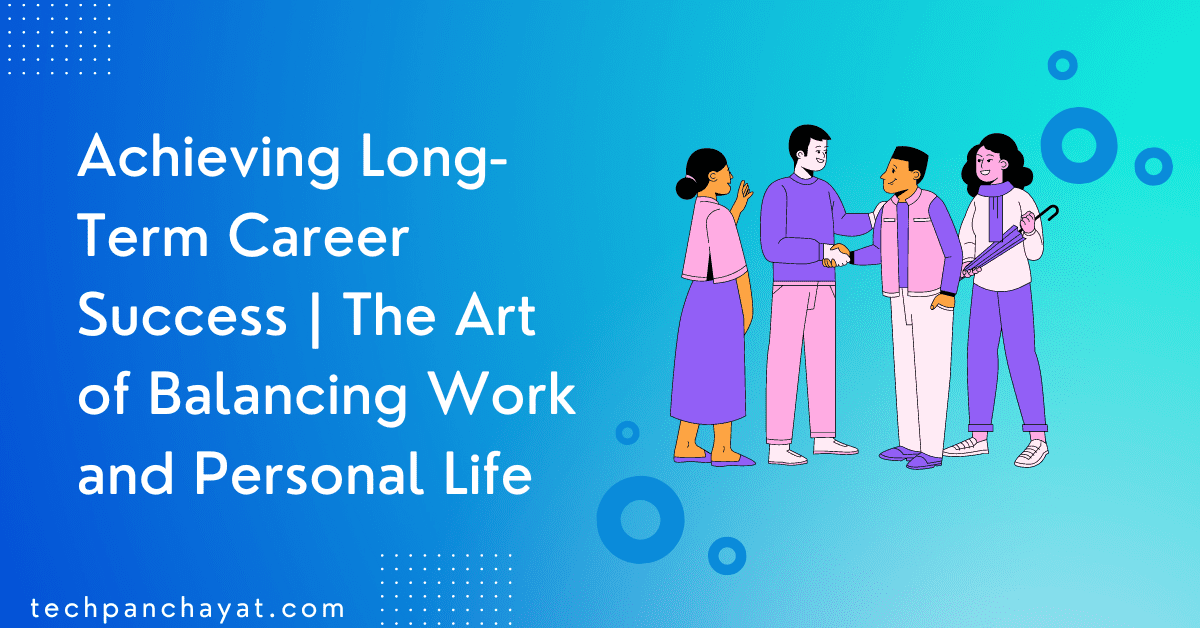In today’s fast-paced and demanding work environments, achieving long-term career success often hinges not only on professional competence but also on the ability to maintain a healthy balance between work and personal life. Striking this delicate equilibrium is essential for sustaining productivity, preserving well-being, and cultivating fulfillment both in and out of the workplace. In this article, we’ll explore the importance of work-life balance in fostering sustainable career growth and provide practical strategies for achieving harmony between professional aspirations and personal well-being.
Understanding Work-Life Balance
Work-life balance encompasses the equilibrium between the demands of one’s career and the pursuit of personal interests, relationships, and well-being. It is not merely about dividing time between work and leisure but entails aligning priorities, managing energy effectively, and nurturing holistic well-being. Achieving work-life balance is a dynamic process that requires conscious effort, boundary-setting, and adaptability to changing circumstances.
The Impact of Work-Life Balance on Career Success
Contrary to the notion that overworking leads to greater productivity and success, research consistently demonstrates that excessive work hours and chronic stress can undermine long-term career prospects. Burnout, decreased job satisfaction, and diminished physical and mental health are among the adverse consequences of neglecting work-life balance.
On the other hand, individuals who prioritize self-care, maintain healthy boundaries, and cultivate meaningful relationships tend to be more resilient, creative, and engaged in their professional endeavors. By fostering a supportive work environment that values work-life balance, organizations can enhance employee retention, morale, and performance, ultimately driving sustainable business success.
Strategies for Balancing Work and Personal Life
Establish Clear Boundaries
Set boundaries between work and personal life by defining specific work hours, unplugging from digital devices during leisure time, and communicating expectations with colleagues and supervisors.
Prioritize Self-Care
Allocate time for activities that promote physical, mental, and emotional well-being, such as exercise, meditation, hobbies, and spending quality time with loved ones.
Practice Time Management
Efficiently manage time by prioritizing tasks, delegating responsibilities when possible, and utilizing tools such as calendars, to-do lists, and time-blocking techniques to maximize productivity.
Foster Flexibility
Advocate for flexible work arrangements, such as remote work options, flexible scheduling, and compressed workweeks, to accommodate personal needs and preferences while fulfilling professional obligations.
Set Realistic Goals
Establish realistic career goals aligned with personal values, aspirations, and priorities, recognizing that success encompasses fulfillment in both professional and personal domains.
Conclusion
In the pursuit of long-term career success, achieving work-life balance emerges as a critical determinant of personal well-being, professional fulfillment, and sustainable productivity. By embracing strategies to harmonize work and personal life, individuals can cultivate resilience, creativity, and fulfillment, enhancing their effectiveness and satisfaction in both spheres.
Moreover, organizations that prioritize work-life balance foster a culture of well-being, engagement, and innovation, positioning themselves for enduring success in a competitive landscape. As we navigate the complexities of modern work environments, let us recognize the importance of work-life balance as a cornerstone of sustainable career growth and holistic well-being.
















